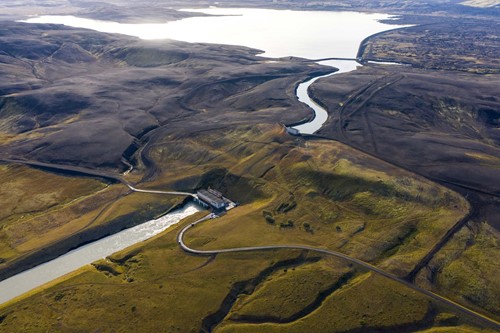News
Landsvirkjun: Shipping green H2 from Iceland to Rotterdam to be realistic before 2030

Landsvirkjun completed a pre-feasibility study about exporting green H2 from Iceland to Rotterdam. The results indicate that such a project could be technically feasible, financially attractive and would have a significant contribution to the fight against climate change as economies around the world will switch from fossil fuels to renewable energy in the coming decades.
The two companies worked together to map the key components of the value chain from renewable power generation and hydrogen production in Iceland, and then ship it to the port of Rotterdam. A comparison was made of possible hydrogen carriers taking into account energy density, costs, demand and other attributes.
The study shows that the first such project could be realized in the second half of this decade and be between 2 and 4 TWh (some 200 to 500 MW). These initial steps can contribute up to 1MMt CO2 reduction per year whereas in the longer term the potential could be a reduction of millions of tons. The energy needed could be a combination of renewable generation including hydro, geothermal and wind. The availability of diverse sources of sustainable energy is a great advantage to Iceland and leads to a competitive price for the Icelandic hydrogen on the European market. The hydrogen would be produced through electrolysis and then either liquified or converted into a carrier for transport to Rotterdam where it would be recovered for use at the Port or in the hinterland.
The port of Rotterdam is Europe's largest port and energy hub and has developed an ambitious hydrogen masterplan, with which it aims to become the major import hub for hydrogen to supply to Europe's changing energy offtake. Upon request by the Dutch government, the Port of Rotterdam Authority identified high potential hydrogen exporting countries and companies to meet Europe’s future demand, of which Iceland was one of the strong contenders.
Landsvirkjun and the Port of Rotterdam intend to continue to work closely together to explore and develop this unique opportunity and expect to elaborate on these plans in the second half of 2022.
"This new green energy for Europe, distributed via Rotterdam’s terminals and hydrogen backbone, could further help decarbonize our industrial complex and our customers elsewhere in Europe," said Allard Castelein, Port of Rotterdam Authority CEO.

